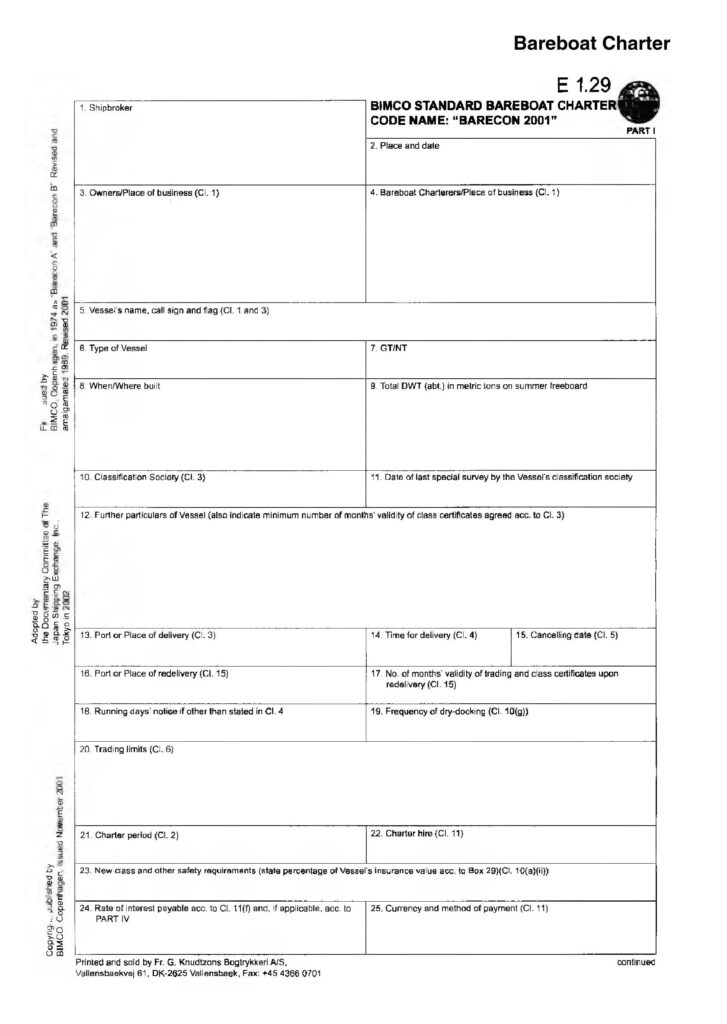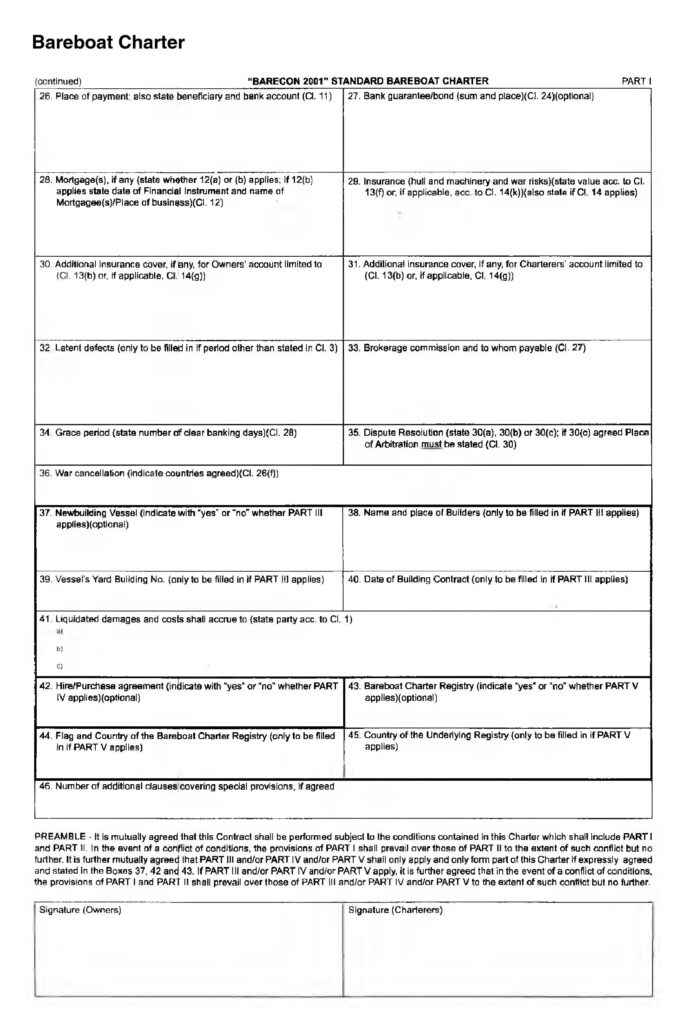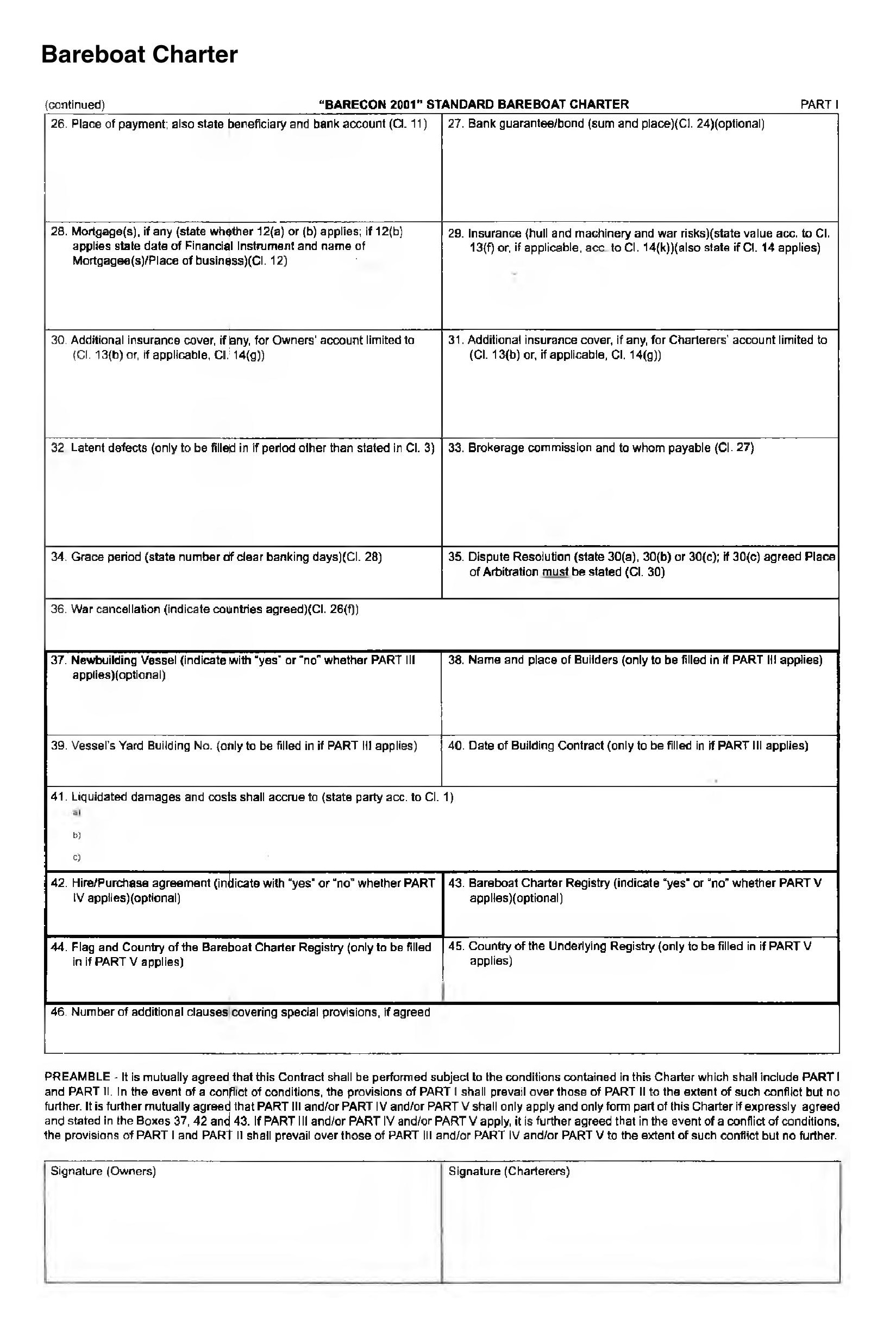The hiring or leasing of a ship for a period of time during which the shipowner
provides only the ship while the charterer provides the crew together with all
stores and bunkers and pays all operating costs. This type of charter is favoured
by persons or companies who wish to own a ship for investment purposes but
who do not have the desire or expertise to operate the ship. Similarly, it is
favoured by persons or companies who have a particular requirement for a
ship and the expertise with which to operate one but without the wish or
ability to purchase. Typical of this category are shipping lines who may wish
to take a ship on for a period of many years but who do not wish to make a
large capital investment by buying one.
A ship hired out in this way is said to be on bareboat charter. This type
of charter is also referred to as a demise charter or a charter by demise.
The person or company who charters a ship in this way is the bareboat
charterer, also known as a demise charterer or charterer by demise.
The contract document is called the bareboat charter- party or bareboat
charter. This document contains the terms and conditions including the
period of the charter, the rate of hire, the trading limits, if any, and all the
rights and responsibilities of the two parties.
BIMCO (the Baltic and International Maritime Conference) publishes a
standard bareboat charter- party, codenamed Barecon 2001. This contract
contains optional sections dealing with hire/purchase agreements and vessels
registered in a bareboat charter registry.
A bareboat charter registry is the country in which the charterer is registered.
This is distinguished from the underlying registry, which is the country
where the owners of the ship are registered.
BIMCO publishes a standard barge bareboat charter party code named
Bargehire 2008.



